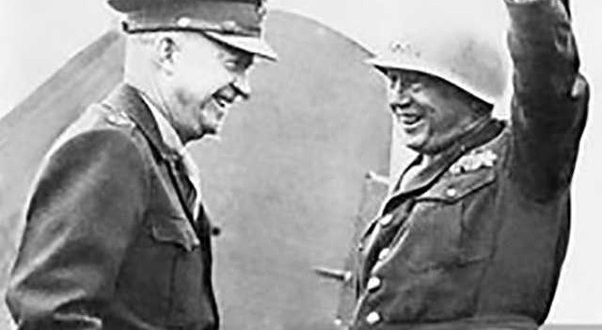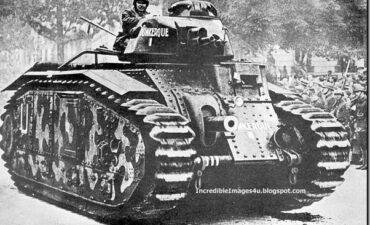What did Eisenhower really think of Patton? Dwight D. Eisenhower and George S. Patton had a complex and multifaceted relationship, marked by mutual respect, occasional tension, and distinct differences in personality and leadership style.
Respect for Military Talent:
Eisenhower respected Patton’s abilities as a military commander. Patton’s aggressive and bold tactics were instrumental in several key victories during World War II, including the relief of Bastogne during the Battle of the Bulge. Eisenhower recognized Patton’s effectiveness in these critical moments.
Personality Clashes:
Despite his respect for Patton’s military prowess, Eisenhower was often frustrated with Patton’s impulsive behavior and controversial statements. Patton’s outspoken nature and penchant for making politically and socially insensitive remarks frequently caused headaches for Eisenhower, who had to manage both military operations and the broader Allied coalition.
Professional Balance:
Eisenhower valued discipline, order, and diplomacy, qualities essential for his role as Supreme Commander of the Allied Expeditionary Force. In contrast, Patton’s flamboyant and sometimes erratic behavior was at odds with Eisenhower’s more measured approach. This difference occasionally led to friction, but Eisenhower generally managed to balance Patton’s strengths with the needs of the broader strategic situation.
Public and Private Views:
Publicly, Eisenhower often defended Patton and praised his military contributions, understanding the importance of presenting a united front. Privately, however, Eisenhower could be critical of Patton’s actions and demeanor, particularly when they threatened to undermine the Allied war effort or diplomatic relations.
Friendship and Loyalty:
Despite their differences, Eisenhower and Patton shared a long-standing friendship dating back to their time at West Point and early military careers. This history created a foundation of mutual loyalty that endured through their professional challenges during the war.
In summary, Eisenhower saw Patton as a highly effective but sometimes problematic commander. He appreciated Patton’s contributions to the war effort but often had to mitigate the fallout from Patton’s more controversial actions and statements.








